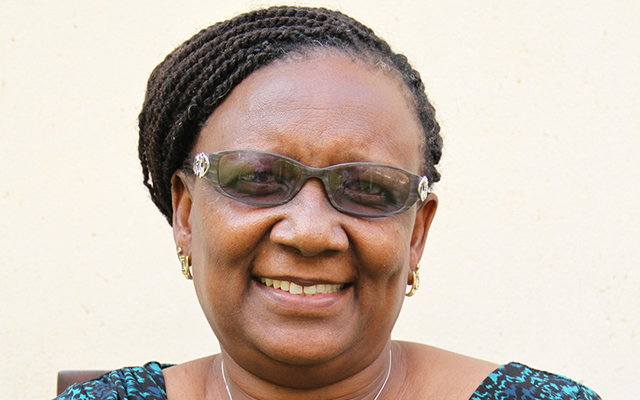Midwives vital in reducing maternal deaths: VP Mphoko


Vice President Phelekezela Mphoko speaks at the International Day of the Midwife commemorations at Mpilo Central Hospital in Bulawayo yesterday. Listening from left are Dr Lilian Dodzo and Minister of Health and Child Care Dr David Parirenyatwa
Pamela Shumba Senior Reporter
THE government will soon increase the midwifery training duration from 12 to 18 months and invest more in the profession to produce more rounded experts who can contribute to the reduction in maternal deaths.
Speaking during the International Day of the Midwife at Mpilo Central Hospital in Bulawayo yesterday, Vice President Phelekezela Mphoko said it was important for every health centre to have adequate midwives because no woman should die while giving birth.
“I’m also made to understand that the midwifery curriculum has been reviewed to promote competency based midwifery education.
“This duration of the training period will give room for student midwives to have time to acquire theory and be able to apply it into clinical practice without being rushed,” said VP Mphoko.
He said it was critical for every woman and her newborn baby to have access to the best possible care before, during and after pregnancy because it’s a national duty to give birth.
“The urgent need to sustain the downward trend on maternal and neonatal deaths has been of great emphasis and midwives have a key role to play in ensuring universal access to healthcare services. The women and newborns of Zimbabwe are in great need of midwives now and in future.
“Quality care is the way forward as we go through the sustainable developmental goals. There’s urgent need to improve the availability, accessibility, acceptability and quality of midwifery services. The midwives provide about 87 percent of the maternity services required by women and their babies,” said VP Mphoko.
The government, he added, is committed to improving working conditions for midwives to avoid loss of midwives to other countries.
“To ensure that there are enough qualified midwives to care for all women and newborns, the government will increase investments in the education of midwives and growing the midwifery workforce.
“Adequate preparation and retention of midwives is critical as up to 90 percent of maternal deaths could be prevented by universal access to a well-educated and regulated midwifery workforce in a health system with adequate equipment and supplies. Midwives should therefore be always available and ensure that every child-bearing woman has access to maternity care,” said VP Mphoko.
He acknowledged that there were a number of issues that needed to be addressed to enhance midwifery education and practice in the country.
Zimbabwe Confederation of Midwives (Zicom) president Dr Lilian Dodzo said it was disheartening that about 300,000 women die from causes related to pregnancy, while about 3 million babies die within their first week of life worldwide.
She appealed to the government to invest in the education of midwives and grow the midwifery workforce to fight maternal and neonatal mortality.
“Investing in midwifery education can yield a 16-fold return on investment in terms of lives of women and babies saved and costs of caesarean sections avoided.
“The country must stop training midwives for other countries because our maternal mortality is still high,” said Dr Dodzo.
She said the midwifery curriculum had been reviewed to incorporate international standards.
The commemorations, organised by the Zicom were held under the theme: “Women and Newborns: The heart of Midwifery.”
International Midwifery Day is commemorated every year on May 5 to bring awareness of the importance of the midwives’ work.
The day was first commemorated in 1991 and has always been observed in over 50 nations around the world.
Health and Child Care Minister Dr David Parirenyatwa, Sweden Ambassador to Zimbabwe Lars Ronnas, War Veterans Minister Rtd Col Tshinga Dube, Women Affairs, Gender and Community Development Deputy Minister Abigail Damasane and senior officials of UNFPA, Zicom and Mpilo Hospital attended yesterday’s event.











Comments